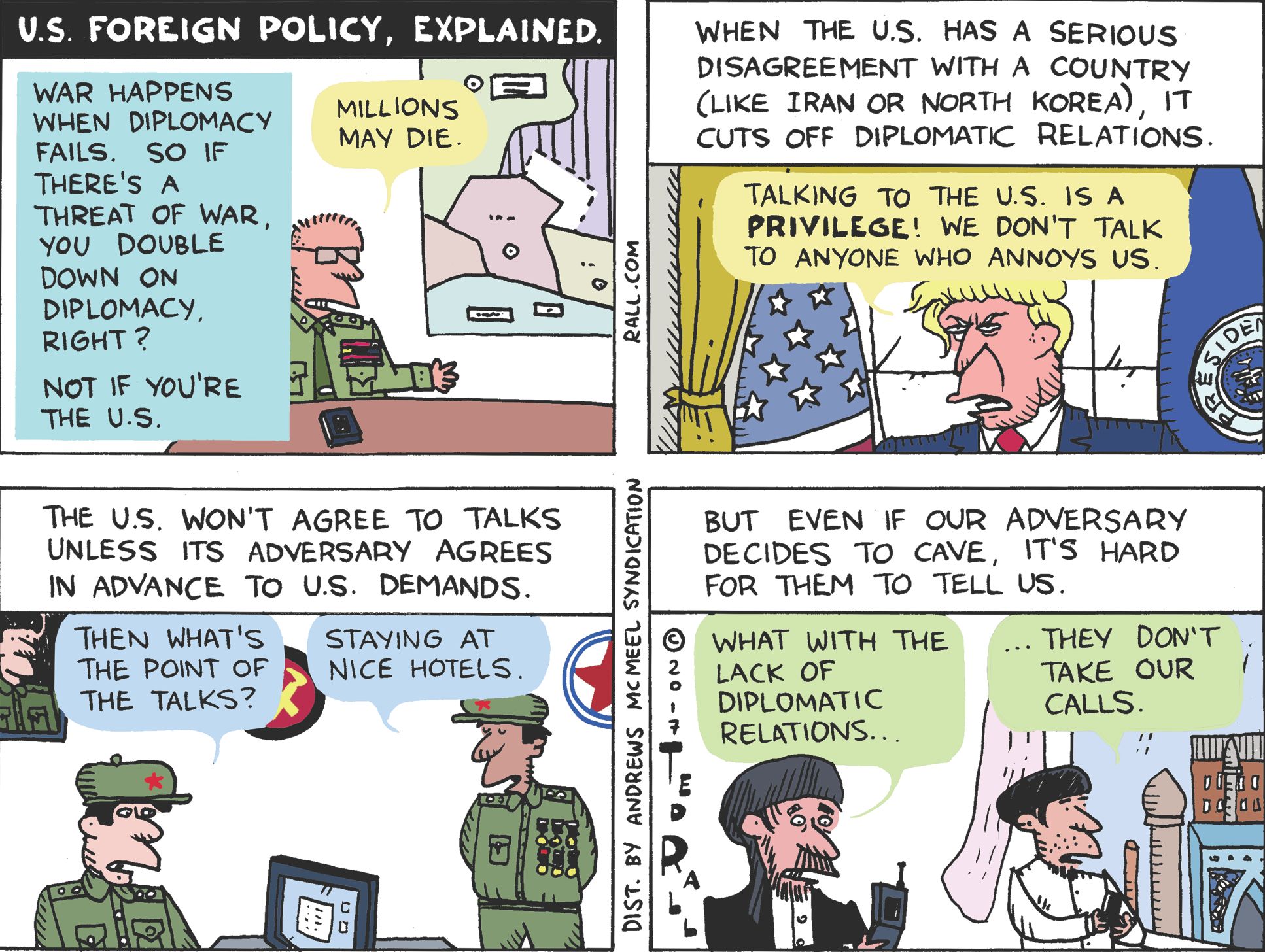As with any human interaction, international relations, whether economic or political, is a combination of cooperation and competition. The "cooperation" part benefits all involved, whether by sustaining world peace or boosting growth and prosperity through free trade. The "competition" part creates serious risks, from economic impediments to war and environmental destruction. So why don't countries cooperate more?
The answer comes down, in part, to the so-called prisoner's dilemma. Countries may suspect that, by betraying their partners, they can obtain a better "deal" for themselves. Facing the temptation of duplicity, they may become concerned, or even suspicious, that their partners — facing the same temptation — are betraying them. As a result, they become even more tempted to betray their partners first.
Game theory, which provides mathematical models of conflict and cooperation between rational decision-makers, has generally not offered much in the way of desirable strategies for overcoming this dilemma, let alone an optimal strategy for resolving actual conflicts. Yet, thanks to the University of Michigan's Robert Axelrod, this may no longer be the case.

















With your current subscription plan you can comment on stories. However, before writing your first comment, please create a display name in the Profile section of your subscriber account page.